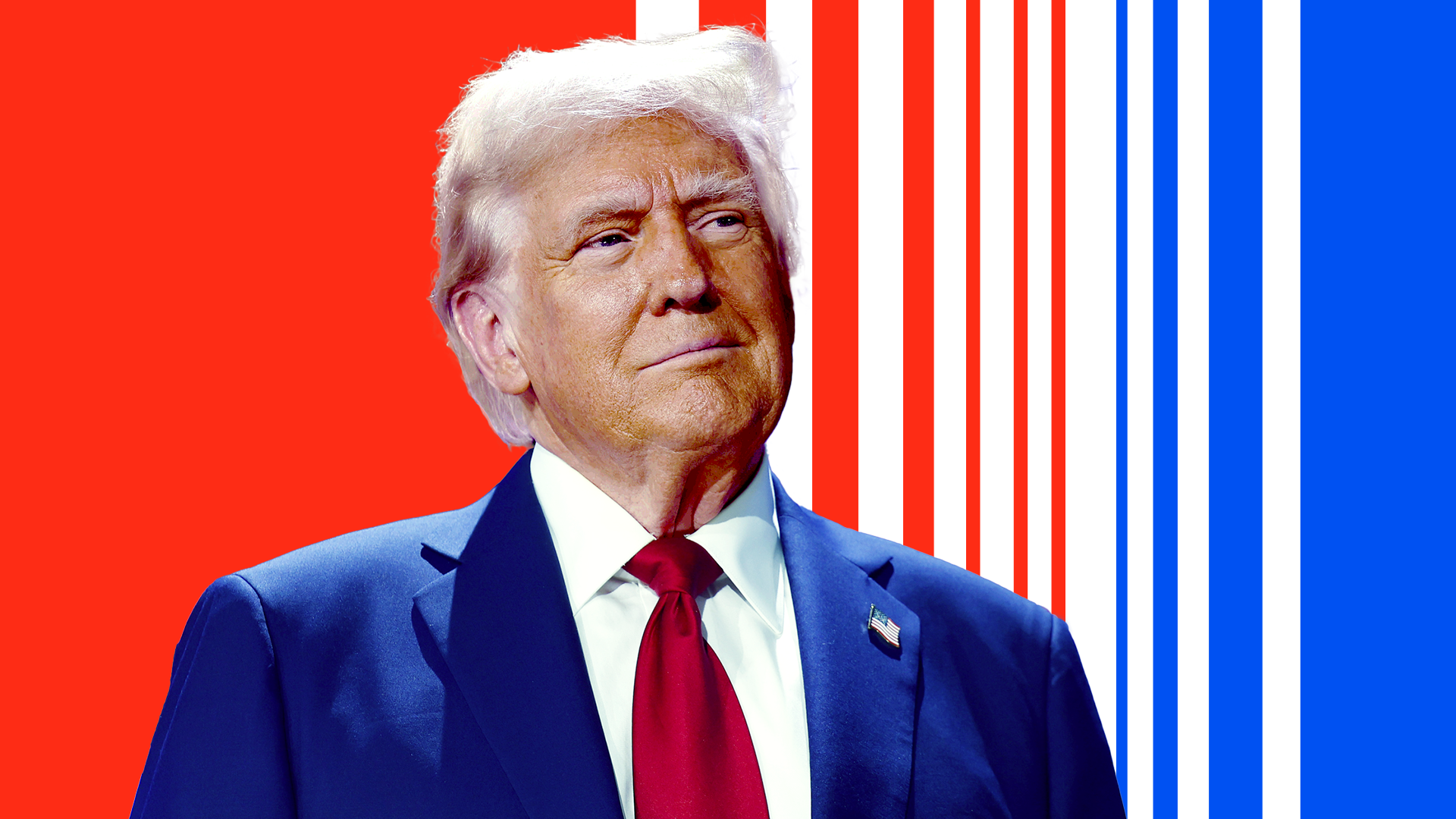
The recent assassination of Charlie Kirk, the 31-year-old co-founder of Turning Point USA, at Utah Valley University on September 10, has reverberated through American society, sparking widespread condemnation of political violence and prompting moments of unexpected reflection. Among the most striking responses was that of veteran actress Jamie Lee Curtis, whose emotional breakdown on the “WTF with Marc Maron” podcast offered a poignant lens through which to examine the human cost of such tragedy, even for those who fundamentally disagreed with Kirk’s political views. Her tears, captured just days after the incident, underscored a shared vulnerability to the trauma of violence and a deep concern for the psychological health of a society increasingly saturated with disturbing imagery.
Kirk, a prominent conservative activist, was fatally shot while speaking at an event, an act that immediately ignited a national conversation about the escalating rhetoric and divisiveness in contemporary American politics. The arrest of 22-year-old Tyler Robinson as the alleged assailant has only deepened the complexity of the event, pushing discussions beyond mere political alignment to fundamental questions of humanity, faith, and the pervasive influence of media in shaping collective consciousness. Curtis’s reaction, in particular, transcended partisan divides, appealing to a common understanding of grief and the profound impact of violent death on families and communities.
This article aims to provide an in-depth examination of the multifaceted reactions to Charlie Kirk’s killing, beginning with Jamie Lee Curtis’s profoundly moving commentary. We will explore her specific points regarding Kirk’s faith and humanity, her concerns about the psychological effects of witnessing such violence through media, and the immediate factual details surrounding the tragic event. Her reflections serve not only as a personal expression of sorrow but also as a powerful prompt for broader societal introspection on the nature of empathy and the long-term consequences of a visually saturated, conflict-ridden public sphere.
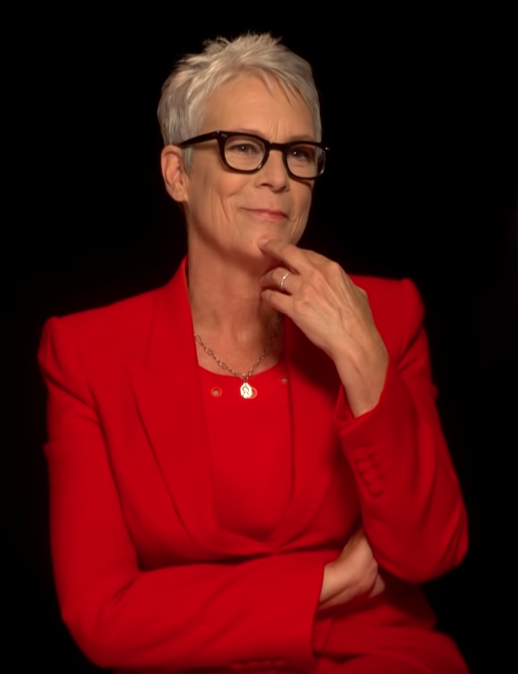
1. **Jamie Lee Curtis’s Emotional Response to Charlie Kirk’s Death**
Jamie Lee Curtis, the acclaimed actress known for her roles in films like “Freakier Friday” and “Everything Everywhere All at Once,” found herself overwhelmed with emotion during a recent appearance on Marc Maron’s “WTF” podcast. Recorded just two days after Charlie Kirk’s assassination, her raw, tearful discussion captured the attention of many, revealing a deeply personal and empathic reaction to the tragic event. She openly confessed that despite her significant political disagreements with Kirk, the news of his death left her profoundly moved.
Curtis’s visible distress was not about endorsing Kirk’s ideology but rather about acknowledging the sheer tragedy of a life violently taken. She articulated her feelings, stating, “I disagreed with him on almost every point I ever heard him say,” yet her sorrow transcended these differences. Her tears spoke to a universal human response to death, particularly one that is sudden and violent, demonstrating a capacity for compassion that extended beyond ideological divides and resonated with many observers across the political spectrum.
The podcast episode highlighted a moment of shared humanity in a politically charged climate. Curtis’s emotional outpouring served as a powerful reminder that beneath the layers of political discourse and disagreement, there remains a fundamental human connection. Her vulnerability offered a stark contrast to the often-impersonal nature of news cycles, bringing a deeply personal and relatable element to a story that might otherwise be discussed in purely political or factual terms.
2. **Curtis’s Acknowledgment of Kirk’s Faith and Humanity**
A central theme of Jamie Lee Curtis’s emotional reflection on Charlie Kirk’s death was her profound acknowledgment of his spiritual and familial roles. Despite her strong opposition to his political views, Curtis repeatedly emphasized her belief in Kirk as “a man of faith, and I hope in that moment when he died, that he felt connected to his faith.” This focus on his spirituality underscored a desire for peace and comfort for the deceased, irrespective of earthly disagreements.
Beyond his faith, Curtis also highlighted Kirk’s roles as a family man. She expressed, “I still believe he’s a father and a husband and a man of faith, and I hope whatever connection to God means that he felt it.” This emphasis on his personal life—his status as a husband and father—served to humanize Kirk, reminding listeners of the private dimensions of a public figure’s life. By focusing on these aspects, Curtis steered the conversation away from politics and towards the shared human experiences of family and spirituality, which are universal and often transcend ideological boundaries.
Her comments resonated as a powerful plea for empathy and a recognition of common humanity, even in the face of deep ideological divides. In a societal landscape often characterized by sharp polarization, Curtis’s ability to compartmentalize her political disagreements from her compassion for Kirk as an individual offered a nuanced perspective. It suggested that understanding and empathy can still exist, even when fundamental beliefs diverge significantly, providing a model for how to approach tragedy with grace and humanity.
3. **The Significance of Curtis’s Naming Error**
During her poignant discussion on the “WTF with Marc Maron” podcast, Jamie Lee Curtis initially misidentified Charlie Kirk, mistakenly referring to him as “Charlie Crist.” This slip of the tongue prompted a gentle correction from host Marc Maron, who clarified that the conservative activist’s name was “Kirk, not Crist.” What followed was Curtis’s insightful and revealing explanation for her error, adding another layer to her emotional response.
Curtis attributed her mistake to a profound subconscious association, explaining, “I just call him Crist, I think, because of Christ, because of his deep belief.” This immediate connection she drew between Kirk’s perceived deep faith and the name “Christ” highlighted the impact his spirituality had on her perception, even influencing her recollection of his name. It underscored her earlier point about him being a “man of faith” and suggested that this aspect of his identity was prominent in her mind.
The misidentification, therefore, became more than just a simple error; it served as a symbolic representation of Curtis’s focus on Kirk’s spiritual dimension rather than his political persona. It revealed how deeply his faith resonated with her, to the extent that it overshadowed other identifying markers. This detail further enriched her narrative, emphasizing her desire to connect with his humanity and spirituality, even as she unequivocally disagreed with his political ideas, offering a rare glimpse into the complex workings of empathy and perception in a contentious public sphere.
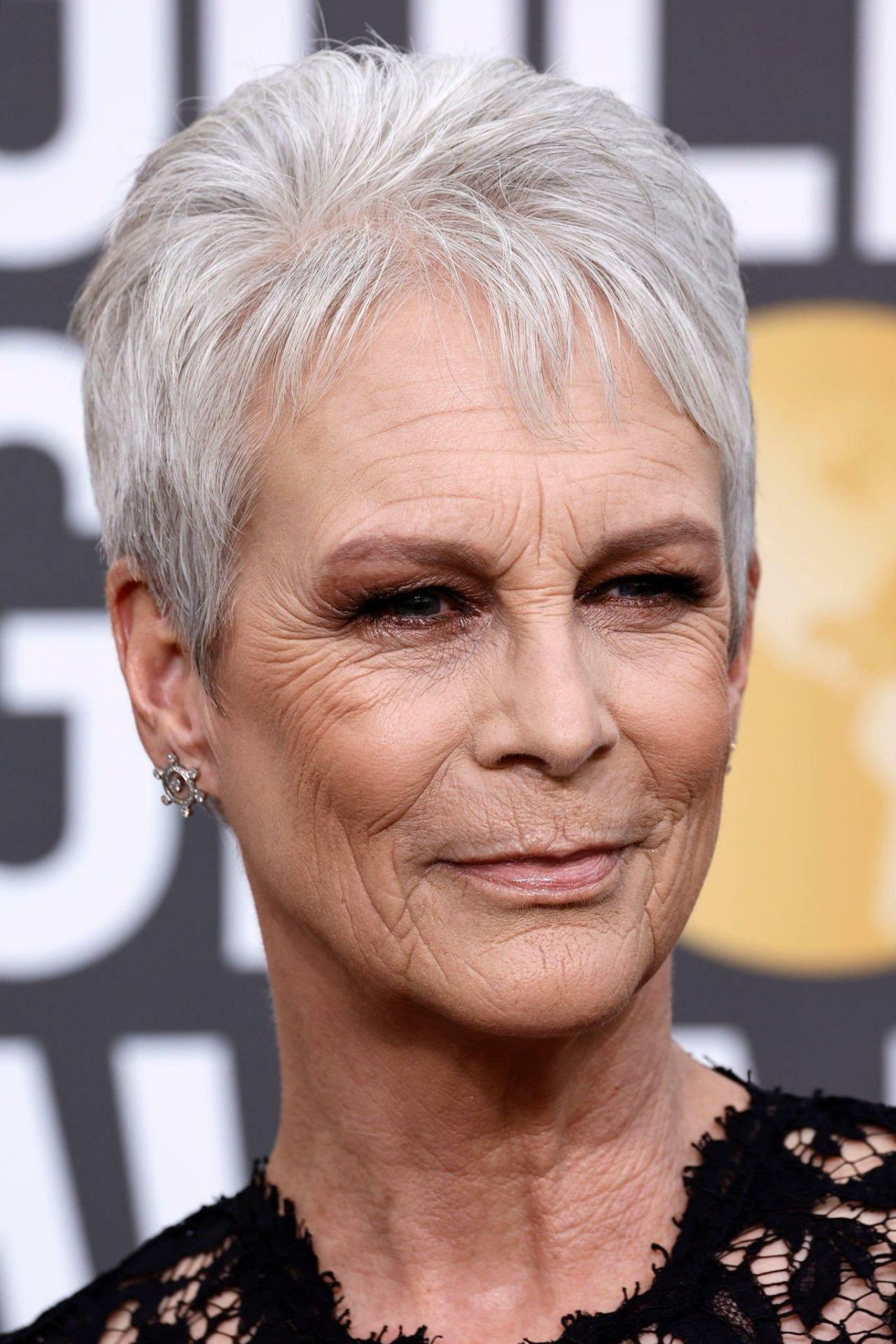
4. **Curtis’s Concerns Regarding Traumatic Imagery’s Psychological Impact**
Beyond her immediate grief, Jamie Lee Curtis delved into a more profound societal concern during her podcast appearance: the psychological impact of repeatedly viewing traumatic imagery. She raised a critical question about modern society’s constant exposure to violent events through media, particularly in the aftermath of incidents like Kirk’s assassination. “We as a society are bombarded with imagery,” she noted, expressing deep apprehension about the long-term effects on the collective psyche.
Curtis drew parallels to other national traumas, referencing the 24th anniversary of the 9/11 terrorist attacks, which had just passed. She questioned the “longitudinal effects of seeing those towers come down over and over and over and over again” and, by extension, “watching his execution over and over and over again.” Her concern was palpable as she struggled to articulate the unknown consequences of such relentless exposure. “We don’t know enough psychologically about what that does,” she stated, her voice choked with emotion.
Her reflections underscored a pervasive anxiety about the desensitization that might result from this constant visual bombardment. Curtis questioned, “Is that the reason why we’re all feeling this lack of humanity—because we are just saturated with these images?” This powerful inquiry suggested a potential link between the widespread circulation of violent footage and a diminishing sense of empathy or a growing numbness within society. Her plea to avoid seeing the footage of Kirk being shot further emphasized her conviction that such images inflict damage, both on individuals and on the broader social fabric.
5. **The Assassination of Charlie Kirk: Event Details**
The tragic event that prompted these widespread reactions occurred on September 10, when Charlie Kirk, a prominent 31-year-old conservative activist and co-founder of Turning Point USA, was fatally shot. The assassination took place while Kirk was speaking before a crowd at Utah Valley University in Orem, Utah. This setting—a university campus during a public speaking engagement—added a layer of shock and alarm to the incident, highlighting the vulnerability of public figures and the unexpected nature of the violence.
Kirk’s death came as he was engaged in his “American Comeback Tour,” a multi-day series of events designed to connect with audiences across the country. The timing and circumstances of the shooting, during what should have been a forum for dialogue and engagement, underscored the stark reality of political tensions escalating to violence. His fatal injury was described as a shot to the neck, an act that immediately led to a widespread manhunt and national headlines.
The incident itself was a sudden and brutal interruption of a public discourse, transforming a political rally into a crime scene. The immediate aftermath involved not only emergency response but also a rapid unfolding of news reports and public reactions. For many, Kirk’s assassination served as a chilling reminder of the fragility of peace and safety in public spaces and the profound impact of politically motivated violence on individuals and the national consciousness.
Read more about: Marjorie Taylor Greene’s Call for a ‘National Divorce’: An In-Depth Look at the Proposal, Its Roots, and Reactions in a Divided America
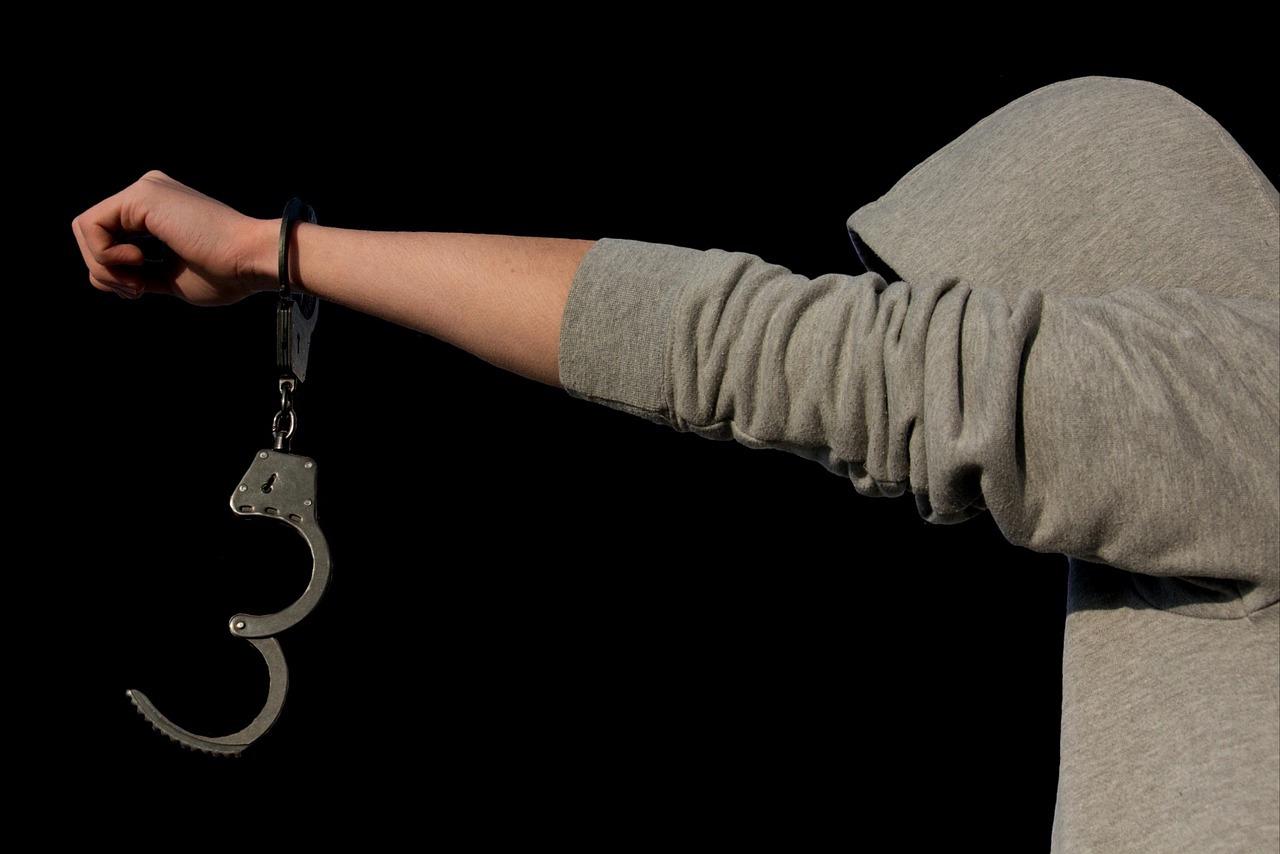
6. **The Capture and Charges Against Tyler Robinson**
Following the tragic assassination of Charlie Kirk, law enforcement agencies initiated a comprehensive manhunt to apprehend the individual responsible. This intense search culminated in the arrest of 22-year-old Tyler Robinson, who was identified as the suspected assailant. Robinson, hailing from St. George, Utah, was taken into custody on Friday, September 12, just two days after the shooting, bringing a swift end to a period of uncertainty and fear.
Upon his arrest, Robinson was accused of killing Kirk and was subsequently held without bail at Utah County Jail. He was expected to make his first appearance in court on September 16. The investigation quickly moved to formal legal proceedings, as authorities worked to piece together the motives and precise events leading to the fatal shooting. The quick identification and apprehension of a suspect provided a measure of immediate justice and reassurance to a community shaken by the violence.
However, the alleged assassin’s lack of cooperation with the FBI after his arrest added a layer of complexity to the ongoing investigation into Kirk’s murder. Sheriff’s reports indicated that Robinson negotiated a “gentle” surrender and was reportedly afraid of being shot, which provided some insight into the circumstances of his capture. The legal process that followed was poised to unravel the full narrative of the incident, addressing both the facts of the crime and the broader implications of such an act of political violence.
Read more about: Arnold Schwarzenegger’s Urgent Warning: Navigating America’s Democracy Cliff After Charlie Kirk’s Assassination
7. **The Context of Mass Media and Shared Trauma**
Jamie Lee Curtis’s reflections on the psychological impact of violent imagery were rooted in a broader understanding of how mass media shapes societal experiences of trauma. She explicitly connected the current deluge of imagery surrounding Kirk’s assassination to past national tragedies, particularly the 9/11 terrorist attacks. Her commentary underscored a growing concern that society is increasingly “numb” and “inured” to violence due to constant visual exposure.
Curtis invoked the collective memory of seeing “those buildings coming down over and over and over and over again” on 9/11, juxtaposing it with the potential for Kirk’s “execution over and over and over again” to be similarly circulated. She also referenced the infamous Zapruder film of President John F. Kennedy’s assassination in 1963, calling it “the only visual document that moves, that shares that horror of what happened.” This historical context highlighted a shift from singular, iconic traumatic images to a constant, overwhelming stream of violent content in the digital age.
Her observations suggested that while historical events like JFK’s assassination had a singular, potent visual document, contemporary society is daily “bombarded with imagery.” This saturation, she argued, might lead to a profound “lack of humanity.” Curtis’s powerful plea for individuals to avoid viewing the footage of Kirk’s death was therefore not merely a personal preference but a broader commentary on the protective measures society might need to adopt to safeguard its collective mental and emotional well-being from the relentless tide of disturbing visual content.
Read more about: Seriously, Watch These: 13 Underappreciated Movies That Were Actually Great
8. **Broader Political Condemnation of Violence**
The shockwaves from Charlie Kirk’s assassination extended far beyond individual grief, prompting a bipartisan chorus of condemnation against political violence. This tragic event served as a stark reminder of the escalating tensions in American public life, with leaders from across the political spectrum stepping forward to denounce the use of force in resolving disagreements. The immediate aftermath saw a collective acknowledgment that such acts undermine the foundational principles of democratic discourse.
Republican and Democratic politicians alike articulated unified messages, emphasizing the dangerous trajectory political extremism can take. These condemnations were not merely rhetorical; they reflected a deeper concern about the erosion of civil engagement and the potential for further violence if such acts are not unequivocally rejected. The calls for unity underscored a shared anxiety regarding the health of the nation’s political discourse and the need to de-escalate aggressive rhetoric.
The widespread denunciation aimed to establish a clear boundary, signaling that while ideological differences are inherent to a vibrant democracy, violence is an unacceptable means of expression or conflict resolution. This collective response highlighted a rare moment of consensus in an otherwise polarized landscape, where the human cost of political animosity became undeniably apparent to all. The focus shifted from partisan debates to a fundamental appeal for civility and respect for human life.
Read more about: U.S. Navy’s Caribbean Operations: An In-Depth Look at Vessel Interdictions, Escalating Tensions with Venezuela, and Legal Scrutiny
9. **Hollywood Voices Echo Calls for Compassion**
The response to Kirk’s death was not confined to political circles; numerous Hollywood figures also weighed in, adding their voices to the condemnation of violence and advocating for compassion. These prominent personalities, often seen as influential cultural arbiters, used their platforms to foster dialogue that transcended immediate political allegiances. Their statements often sought to humanize the tragedy, focusing on the shared grief rather than the divisive issues.
Celebrities from various backgrounds and political leanings joined the chorus, underlining the pervasive sense of unease that had settled over the entertainment industry. Their remarks served as a powerful testament to the idea that despite differing worldviews, a common ground of humanity and empathy remains accessible. The collective outcry from these public figures underscored the depth of societal concern.
Many of these artists articulated a fundamental desire for an end to the cycle of anger and animosity that frequently characterizes public discourse. They appealed directly to their audiences and the broader public, encouraging introspection and a renewed commitment to peaceful engagement. This outpouring from Hollywood suggested a shared realization that the implications of such violence extend far beyond any single political movement or individual.
Read more about: Unpacking ‘Beloved’: Why Toni Morrison’s Pulitzer-Winning Masterpiece Still Haunts and Inspires Us Today
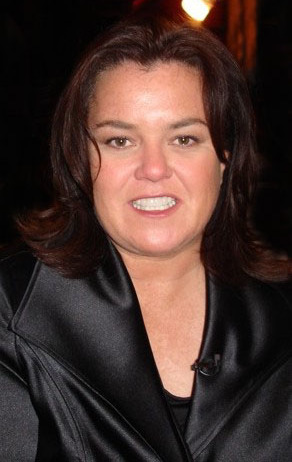
10. **Rosie O’Donnell’s Stance Against Violence**
Among the prominent voices from Hollywood was comedian Rosie O’Donnell, who utilized her social media platform to express her strong feelings regarding Kirk’s assassination. Her Instagram post resonated with many, providing a clear and direct condemnation of the violence that had transpired. O’Donnell’s words cut through the political noise, focusing squarely on the moral implications of such an act.
O’Donnell unequivocally stated that Kirk’s killing was “wrong on every level.” This succinct yet powerful declaration encapsulated a sentiment shared by many who sought to rise above political affiliations in the face of tragedy. Her commentary highlighted a basic human reaction to senseless violence, irrespective of the victim’s public persona or controversial views.
Her statement served as a reminder that fundamental ethical principles should guide societal reactions, even in highly charged political environments. O’Donnell’s willingness to speak out demonstrated a commitment to denouncing violence as an instrument of political change, reinforcing the idea that some lines should never be crossed, regardless of one’s disagreements.
Read more about: The Great Escape: Why Angelina Jolie And Other A-Listers Are Rethinking Their American Lives

11. **Jimmy Kimmel’s Plea for Human Empathy**
Late-night host Jimmy Kimmel also utilized his platform, Instagram, to articulate a powerful plea for empathy and a cessation of political finger-pointing in the wake of Kirk’s assassination. In a post on September 10, Kimmel directly appealed to the public’s shared humanity, urging a moment of collective understanding. His words reflected a widespread sentiment of shock and sorrow over the violence.
Kimmel’s message was direct and poignant: “Instead of the angry finger-pointing, can we just for one day agree that it is horrible and monstrous to shoot another human?” This question challenged his audience to look beyond political differences and acknowledge the inherent wrongness of violence. He emphasized the profound human cost, highlighting the devastating impact on “children, parents and innocents who fall victim to senseless gun violence.”
He concluded his heartfelt statement by extending personal sympathy, writing, “On behalf of my family, we send love to the Kirks and to all the children, parents and innocents who fall victim to senseless gun violence.” Kimmel’s remarks underscored a desire for a return to basic human decency and compassion, even amidst deeply entrenched ideological divides, offering a poignant reminder of our shared vulnerability.

12. **Chris Martin’s Universal Message of Love**
The global reach of Charlie Kirk’s assassination even touched the world of music, with Coldplay frontman Chris Martin addressing the tragedy during a concert in London. His remarks transcended the immediate political context, transforming the moment into a universal call for love and understanding. Martin’s perspective offered a unique, globally-oriented response to the American tragedy.
During his performance, Martin urged fans to “send love” to people around the world, specifically including “Charlie Kirk’s family.” This gesture of extending compassion to the family of a figure with whom many might politically disagree was particularly significant. He continued, “You can send it to anybody’s family. You can send it to people you disagree with, but you send them love anyway.”
This message from a prominent international artist reinforced the idea that empathy and human connection should not be limited by political boundaries or ideological rifts. Martin’s call for universal love served as a powerful example of how to respond to tragedy with grace, advocating for a fundamental interconnectedness that can help bridge societal divides and foster healing.
Read more about: Inside the Lavish World of Lefty: Phil Mickelson’s Elite Garage and Unrivaled Collections

13. **Tributes from Kirk’s Widow and Turning Point USA**
Amidst the national dialogue and celebrity reactions, the most personal and poignant tributes came from Charlie Kirk’s immediate family and the organization he co-founded. Erika Kirk, his widow, shared a deeply moving tribute on Instagram, offering a raw and intimate glimpse into her profound grief and love for her late husband. Her words humanized Kirk beyond his public persona.
Erika Kirk’s message underscored her husband’s unwavering faith and his dedication to his family. She wrote, “The sound of this widow weeping echoes throughout this world like a battle cry,” conveying the depth of her sorrow. Her tribute emphasized his commitment to his spiritual beliefs, stating, “Rest in the arms of our Lord baby as he blankets you with the words I know your heart always strived to hear, ‘well done My good and faithful servant.'” This profound statement highlighted Kirk’s ultimate aspiration for his life.
Turning Point USA, the conservative nonprofit organization founded by Kirk in 2012, also paid a heartfelt tribute. The organization remembered him as someone who “deeply loved Christ,” noting that “above all, he wished to be remembered for his faith.” These acknowledgments from his closest personal and professional circles painted a consistent picture of Kirk as a man driven by deep spiritual convictions and devotion to his loved ones.
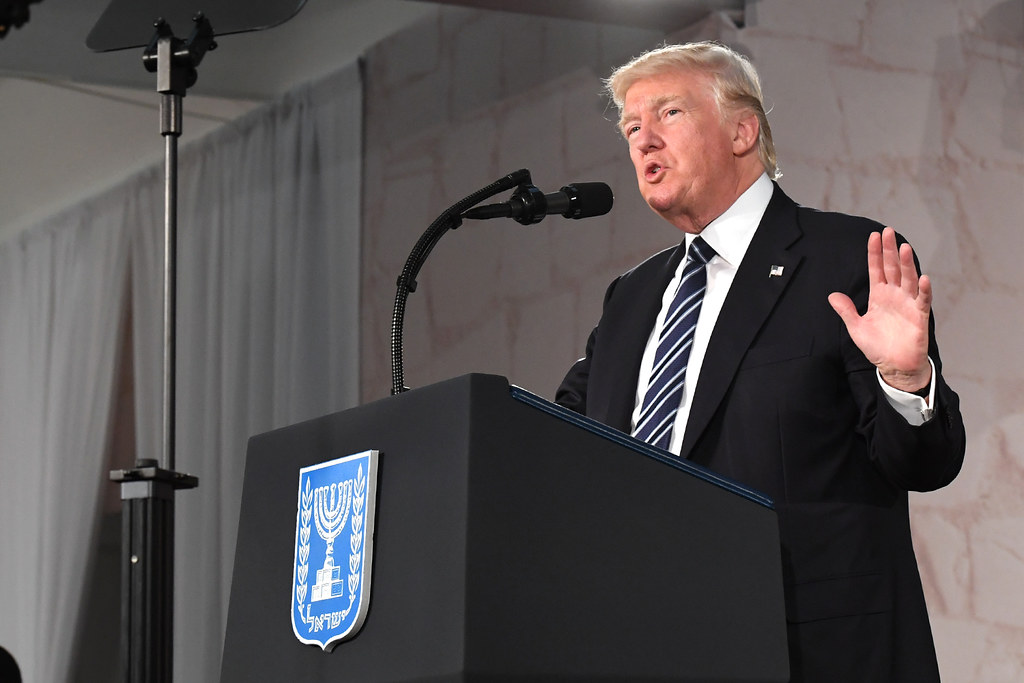
14. **Former President Trump’s Posthumous Honor**
The national response to Charlie Kirk’s assassination also included a significant acknowledgment from the highest levels of American politics. Former President Donald Trump was notably the first to publicly announce Kirk’s death, utilizing his Truth Social platform to express his condolences and recognize Kirk’s contributions. This immediate response from a former head of state underscored the gravity of the event.
Beyond his initial announcement, the former President further honored Kirk by stating he would posthumously award his close ally the Presidential Medal of Freedom. This prestigious honor, the nation’s highest civilian award, signifies an exceptional recognition of an individual’s merits and contributions. The decision to bestow such a medal reflected the profound impact Kirk had within conservative circles and on his prominent supporters.
This posthumous recognition served as a powerful political statement, cementing Kirk’s legacy within a specific ideological movement. It ensured that his contributions and his tragic death would be remembered and honored at a national level, signifying the deep admiration and respect held for him by significant figures in American politics. The Medal of Freedom underscored Kirk’s lasting influence and the symbolic importance of his life and work.
Read more about: Erika Kirk Breaks Silence: A Widow’s Vow to Uphold Charlie Kirk’s Legacy and Mission Amidst National Mourning
The assassination of Charlie Kirk has, in its wake, unveiled a complex tapestry of reactions—from the deeply personal anguish of Jamie Lee Curtis to the unifying calls for peace from across the entertainment and political spectrums, culminating in profound tributes and a significant posthumous honor. This tragedy has not only prompted a necessary reckoning with the escalating rhetoric in American public life but has also illuminated the enduring human capacity for empathy, even amidst stark ideological divides. It serves as a stark reminder of the fragile nature of civility and the urgent imperative to seek common ground, to remember our shared humanity, and to actively condemn the violence that threatens to fracture the very essence of our society. The dialogue sparked by Kirk’s death, though born of sorrow, offers a crucial opportunity for introspection and a renewed commitment to a more compassionate and unified national future.









